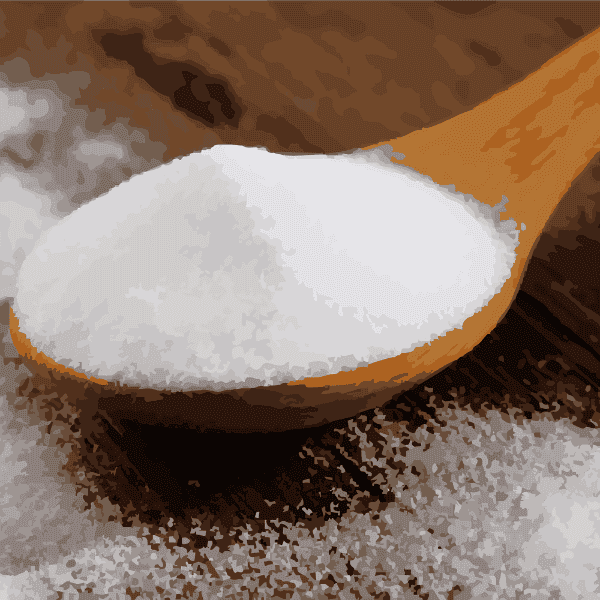
Washing Soda
Washing soda, or sodium carbonate, is a cleaning agent that has naturally occurring alkaline compounds that help clean dirt and grease. It also helps to soften water. It is a common ingredient in laundry detergents and cleaning products.
Washing soda, also known as soda ash, is a common ingredient to use in DIY laundry detergent. It is closely related to baking soda, sharing almost the same chemical structure, but they are not used interchangeably. Washing soda is an abrasive cleaning agent that shines in its ability to remove stains, soften water, and help clean heavy-duty messes. Washing soda is alkaline, making it effective at removing grease and oil. It can be found in most grocery stores near the laundry detergent.
You might need washing soda if . . .
- You are looking for a single ingredient cleaning aid.
- You want to make your own laundry detergent.
- You need help removing stubborn stains or messes.
Benefits of Washing Soda
- Effective, abrasive cleaning agent with a variety of uses
- Milder than conventional cleaning products, but just as effective
- Helpful laundry booster
- Cleans soap scum residue and grease or oil stains
- Helps with heavy-duty cleaning, such as cleaning a grill or oven
Common Ways to Use Washing Soda
- As an ingredient in homemade laundry detergent or as a laundry booster
- To clean dishes, bathroom surfaces, carpets, or fabrics
- To unclog drains
- Stain remover for clothes
- To soften water
- As a grill or oven cleaner
- For a safer pest control alternative (effective against aphids and whiteflies)
How Washing Soda is Made
Washing soda can occur naturally from deposits in the ground. The most prominent location in the United States with deposits is near the Green River in Wyoming. It can also be produced synthetically, made from sodium chloride, ammonia, and lime (which is called the Solvay process). Generally, it is more cost-efficient to mine the substance rather than produce it synthetically. It can also be made at home by placing baking soda in the oven for one hour at 400°F.
Safety Concerns
Washing soda can be dangerous in large quantities. May cause skin irritation. Use gloves when handling and avoid direct skin contact. Not to be used internally. Keep out of reach of children and pets. It is listed as Generally Regarded as Safe (GRAS) by the FDA, with general precautions on handling alkaline-based substances.
Other Concerns: Do not use on aluminum, fiberglass, or waxed/polished surfaces, as it can cause damage to the finish.